When you think of expiration or use-by dates, you’re probably thinking about perishable foods such as dairy or produce. Food labeling varies from country to country and even state to state, but the general purpose is to indicate how long an unopened food product will remain at peak quality and freshness, according to The Public Health and Safety Organization. You may have seen expiration dates on packaged tea and wondered, “Can tea go bad?” or “Can I drink tea past the expiration?”
Tea does expire just like any other packaged food. Although it does not expire quite as quickly as a product such as milk, you should still pay attention to the date listed on the label. Additionally, different types of tea have different time frames for expiration. The best way to ensure fresh tea is to use proper storage methods.
In this article, we will discuss how tea expires, how to tell if your tea has expired, and the best tea storage methods for maximum flavor and freshness. Keeping reading for more information!
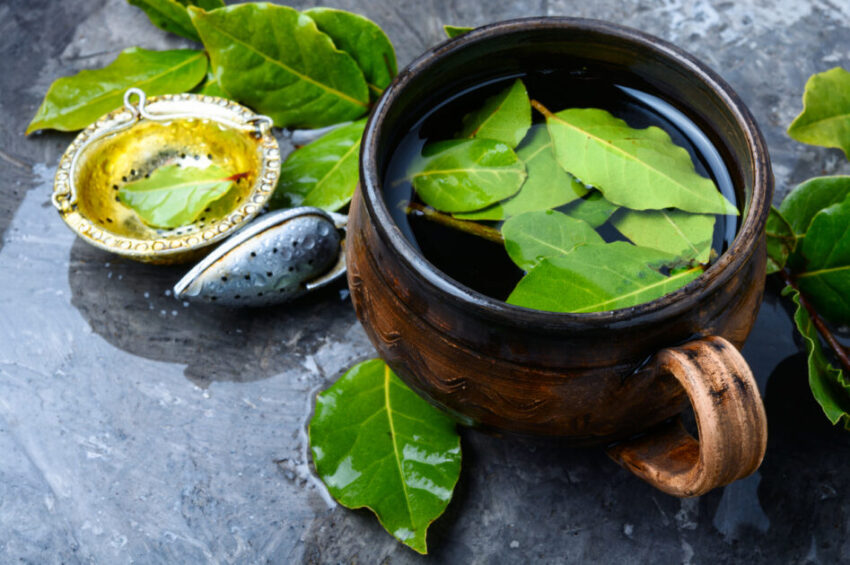
Does Tea Expire?
As a tea lover, you want to make sure your cup of tea is full of delicious flavors and health benefits. You may have old tea bags or loose-leaf tea in your kitchen that are cause for question. If you are wondering whether or not tea expires, the short answer is yes. The long answer involves different types of tea and what causes the tea to expire.
A general rule of thumb is that tea can last anywhere from 6 months to 3 years. If your tea is more than 3 years past the expiry date, it’s a good idea to throw it away. But, let’s take a closer look at the expiration times for different types of tea so you can be sure.
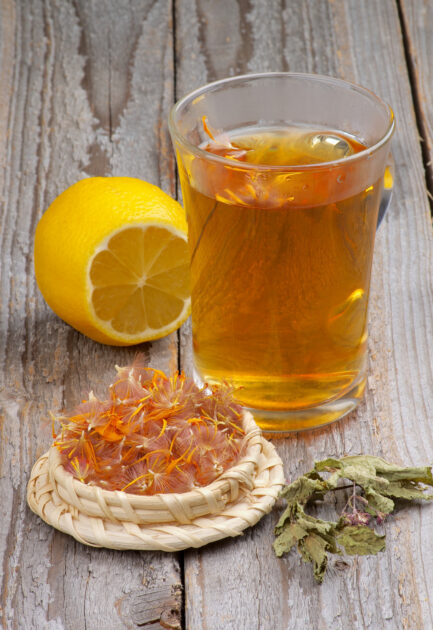
Green Tea
Green Tea is one of the quickest-expiring teas. Green tea leaves have a ton of health benefits, including antioxidants and the ability to increase the body’s metabolism. To maintain your tea’s flavor and benefits, it is best to consume it within six months of opening the package.
Oolong Tea
There are two different types of oolong tea, light and dark. Dark oolong tea has some of the longest shelf life out of any tea. If properly stored at room temperature, this type of tea can last an unlimited amount of time and even be praised for aging. Light oolong tea only lasts 5 years, which is still much longer than other tea types.
Black Tea
Black tea is a fermented tea, which means it lasts much longer than other tea types. The best-by date of black tea is usually up to 3 years as long as it is kept in a cool, dry place.
White Tea
White tea is the least processed tea, meaning it does not last as long as other teas but does still have a longer shelf life than green tea. White tea maintains a higher level of antioxidants because of this preparation method. The white tea expiration date is typically between 1 to 2 years.
Herbal Tea
Herbal tea expires in a different way than other teas. If stored properly, the tea leaves themselves will not go bad, but the tea’s flavor will be lost. Although it is safe to drink, it might not have the best flavor. Without the natural oils of real tea, herbal tea goes stale more quickly compared to other tea types. Herbal tea bags also lose their natural flavors, aroma, and colors quickly.
Yellow Tea
Yellow tea can promote metabolism function, improve dental health, and is great for anti-aging properties. Yellow tea is fermented similarly to green tea, therefore they have similar aging properties. If properly stored in an airtight container, this tea can last for up to a year. If you are close to this date, be sure to smell the tea to ensure freshness and health benefits.
Pu-erh Tea
If you have a hard time drinking your tea within the expiry date, you might want to try out pu-erh tea. The good news about this type of tea is that it tastes better with age! When properly stored, there is no expiration date on pu-erh tea.
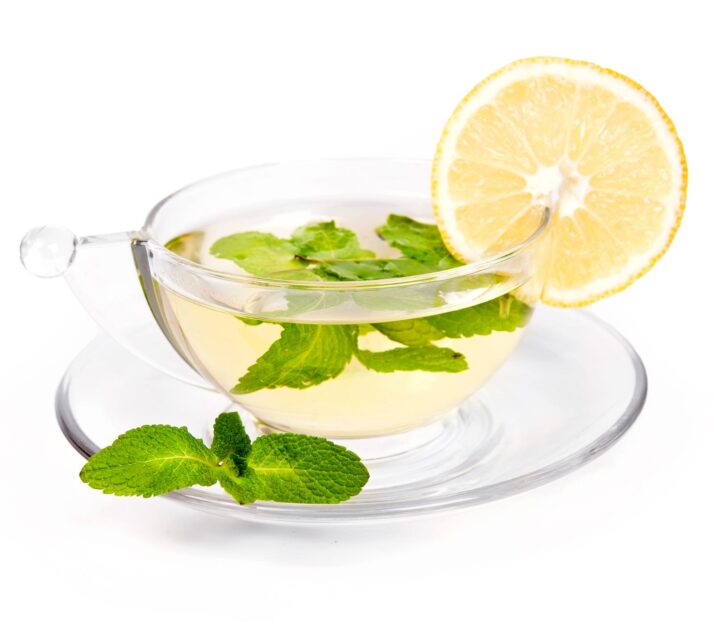
How To Tell If Your Tea Has Expired
Besides following the tea expiration date printed on the original packaging of your tea, there are a few ways to tell whether or not you have expired tea on your hands. You can use your senses to determine if a tea has gone bad based on the smell, look, and feel of the tea. Different teas will have different tells to their freshness.
Old tea will have a less fragrant smell to it than fresh tea. Additionally, if you are not practicing proper storage, your tea could develop a musty or moldy smell due to moisture getting into the container if left in a humid environment. Do not consume tea if it has a foul smell.
You can also feel the texture of loose tea leaves to tell if they are still good. Fresh loose leaves will feel strong and smooth to the touch, while old tea leaves that have been sitting for a long time will feel crumpy, like dried leaves that have fallen from trees in Autumn.
The third and most obvious way to tell if your tea has gone bad is the flavor of your tea. While most teas have bold flavors, the original flavor of your tea will be dull and bland if it is not fresh.
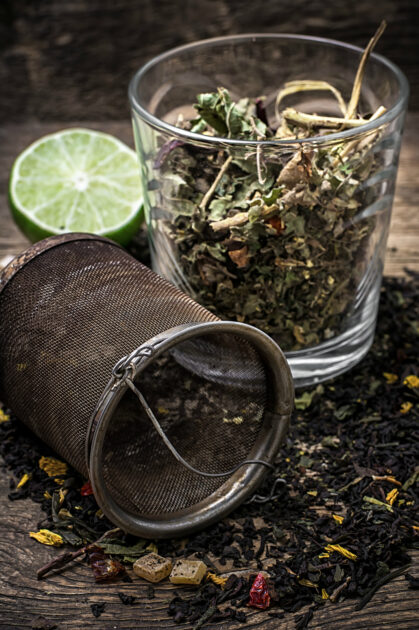
Is It Safe To Drink Expired Tea?
If your tea is not moldy, there is nothing wrong with drinking expired tea. As mentioned earlier, the tea’s flavor, as well as the medicinal properties of the tea will be heavily diluted or completely gone when the tea has expired. It’s recommended to stick to the labeled shelf life of your tea to get all the benefits and avoid a bad taste.
Best Way To Store Your Tea
Now that we have discussed the ways to tell if your tea is expired, let’s discuss how to keep your tea fresh for as long as possible. Tea drinkers know that there are a few key elements to include in the storage methods to ensure the freshness of your tea, including the container, temperature, and environment.
No matter the type of tea, whether it is loose-leaf tea, tea sachets, and even individually wrapped tea bags should always be stored in airtight containers like a tea tin, jar, box, or sealable bag. This prevents any moisture from getting into your tea, which will prevent mold.
In addition to keeping your tea in a sealed container, you also should not store tea leaves in glass jars. Glass can expose your tea to direct sunlight, which can dry out the leaves quicker than intended, ruining the product quality.
For best results, it’s a good idea to store your tea in an airtight container in a cool, dark place. This is a great way to increase and preserve the shelf life of tea.
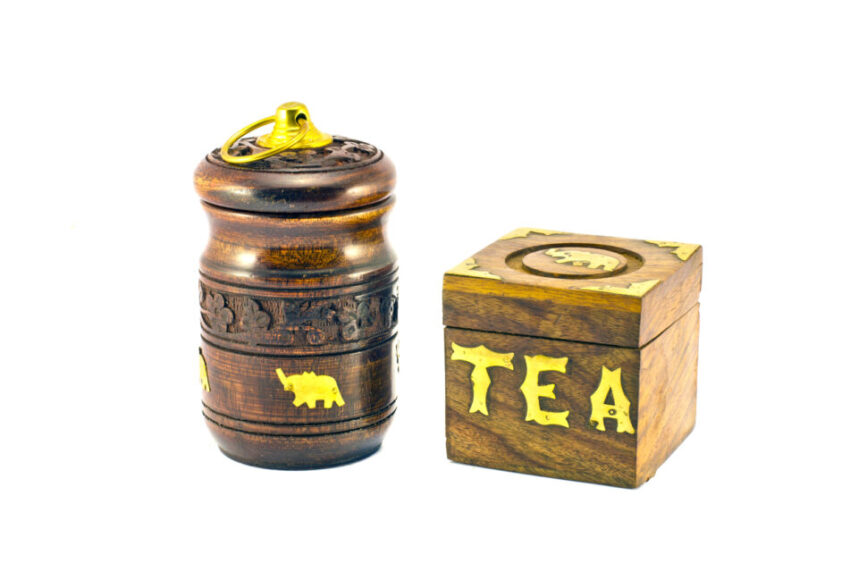
Can You Freeze Tea Leaves?
Freezing your tea leaves can be a good way to store dry tea leaves for a long time, but it must be done correctly. Leaving your tea leaves unprotected in the freezer or refrigerator can cause them to absorb different flavors from the other foods around them.
To freeze your tea leaves and prevent them from being exposed to moisture, you must remove them from the tea package and use a vacuum seal for the best results. This method will last about 6 months. Helpful Tea Drinker Tip: when freezing, write the date that you stored the tea leaves on your bag or container to best keep track of how long they have been in the freezer!

What To Do With Expired Tea?
So, let’s say you’ve come across some tea in your cabinet or pantry and notice the smell is much duller than when originally purchased. You look down at the packaging to see that the expiration date was a few months ago. So what do you do? Or what can you do with this past-due tea? We know that as long as your tea is not moldy, it is safe to consume, but probably will not be as flavorful or contain the healthy properties. It’s lightly flavored hot water, and who wants that?
Aside from drinking bland tea or throwing it away, here is a list of ways creative ways you can use expired tea:
- Add to a compost pile
- Give your garden a boost by mixing tea leaves with soil
- Place dry tea bags around the home to absorb odor (The fridge, closets, or stinky shoes)
- Polish wood furniture by brewing weak tea
- Use a damp tea bag to remove hard water stains in the bathroom
- Use in recipes such as salad dressing or rice to give extra flavor
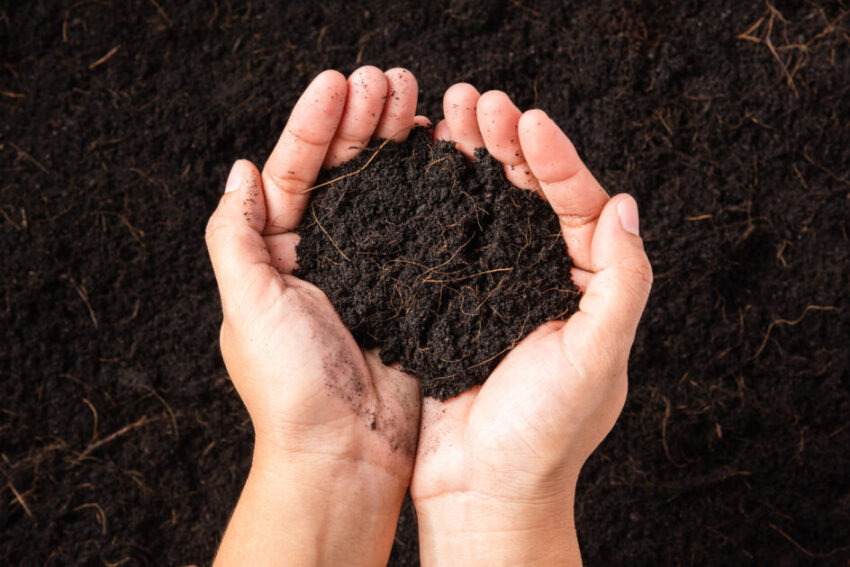
Summary
Perhaps you and your family have a pantry full of tea that has been sitting there for a while. You might be wondering whether or not it is safe to drink! Tea, just like many other products we consume, usually has an expiration or use-by date on the packaging. This date should be followed to ensure the maximum freshness, flavor, and added health benefits of drinking tea. Different types of teas have different expiry dates. For example, green tea leaves are one of the quickest-expiring teas, keeping their freshness for only 6 months. Meanwhile, pu-erh tea has no expiration date and even tastes better with age. You can tell a tea has gone bad using your smell, touch, and taste.
Additionally, proper storage can play a big factor in the expiration time of your tea. Proper storage can increase the longevity of your tea. The best way to store tea is in an airtight container that is located in a cool, dry place at room temperature. You can also freeze tea leaves, but they must be placed in a vacuum-tight seal. Letting your tea get exposed to moisture, extreme cold, heat sources or direct sunlight can compromise the leaves, leading them to go bad or even become moldy.
If you want to revive your tea and use it past its expiration date, there are plenty of other ways to use tea besides as a delicious drink. Try adding tea leaves to your compost pile, garden, cleaning products, or recipes. We hope you enjoyed this article and learning about tea! Stay tuned for more helpful tea topics.
Sources
https://www.nsf.org/consumer-resources/article
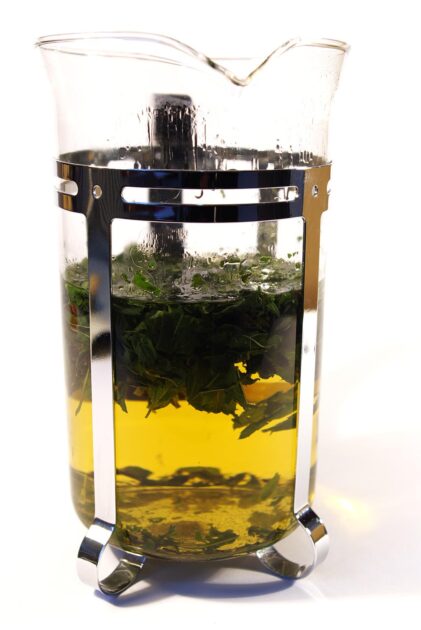
Pingback: HOW TO CHOOSE THE BEST TEAS FOR HISTAMINE INTOLERANCE
Pingback: IS BLACK TEA A MAGIC DRINK OR A CAFFEINE NIGHTMARE? -
Pingback: WARNING! AVOID DRINKING TEA LEFT OUT OVERNIGHT IMMEDIATELY -
Pingback: palo azul tea recipe: how to make this miracle drink -
Pingback: WARNING! THE SHOCKING EFFECTS OF GIVING YOUR DOG TEA -
Pingback: WE INTRODUCE YOU TO THE BEST TEAS FOR HORMONAL BALANCE -
Pingback: REVOLUTIONARY HACK: FREEZING YOUR TEA BAGS FOR MAX FLAVOR
Pingback: THE TRUTH ABOUT GINGER TEA FOR KIDNEY HEALTH -
Pingback: Sea Moss in Hot Tea: The Ultimate Health Hack Revealed! -
Pingback: The Best Tea For Sinus Issues: Use This Remedy Right Now! -
Pingback: Iaso Tea and Breastfeeding! Learn the Shocking Truth Now!
Pingback: How To Make Herbalife Energy Tea - itseverythingtea.com